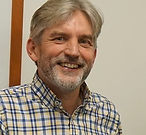Four Ways Churches Grow
- Ian Duncum

- Oct 4, 2019
- 4 min read

There are only four ways that churches grow. By growth, I mean that they are reaching people for Christ, including them into the church and developing leaders. I am talking about healthy, sustainable growth (a free church health checklist is available here).
While these four ways often produce growth, in my experience as a coach and consultant, they do not guarantee it. There are no “silver bullets” when it comes to slaying the vampires of church stuckness and decline. However, I will say that doing the same things in the same way will likely not produce healthy, sustainable growth either.
1. An Exceptional Pastor/Minister
The first way that churches grow is that there are an elite few pastors who are exceptionally gifted and facilitate healthy, sustainable growth over multiple size transitions {e.g. pastoral size church (50-180) through Program size church (150-400) to Corporate size church (350+)}. This is not the vast majority of pastors. And I would suggest that among these few pastors, there would be an even smaller number that do not have significant input from one of the following three ways that churches grow.
2. Church Consultancy
The second way that churches grow is through a church consultancy. In my research, published as The Impact of Church Consultancy (Wipf & Stock, 2019), available in Australia UK USA NZ Brazil and elsewhere. Half of the churches in my sample were receiving a subsidy because of the ministry and financial viability. Five years later, 70% of the churches that had a consultancy had grown, one by 65%. The average growth of these churches was 9.7% over the five years post-consultancy, which was fourteen times the average growth of all churches in the denomination!
3. A Church Accelerator Program
The third way that churches grow is through a church accelerator program. There are a number of these that have been used in an Australian context such as Alan Roxburgh’s Future Directions used by Churches of Christ, Paul Borden and Salvation Army’s Growing Healthy Corps, Natural Church Development with Brisbane Anglicans, Ken Morgan’s Pathways for Melbourne Anglicans, 3DM adapted by Fitzroy North Church of Christ, and Neil Cole’s Church Transfusion, but at this point I haven’t seen hard data except for Ken Morgan’s Program for Parish Renewal. If you have data on the impact of the other programs I would love to see it.
There are three advantages of a church accelerator program. Firstly, there is usually a cohort of church leaders from either the same or different denominations who can encourage one another and share their experiences, as well as receive group and individual coaching. Sometimes these church leaders will have churches at similar size points who are working through the same issues. Secondly, these programs focus resources on mission and multiplying disciples/leaders. And thirdly, these programs tend to recruit churches that want to take a step up, rather than to recover from significant conflict or deep decline. I am convinced that if denominations focussed their resources proactively on churches in the middle third they would see significant growth and health emerge.
4. A Coach or Mentor with Demonstrated Experience in Growing a Church
The fourth way that churches grow is for a pastor to have a mentor with demonstrated experience in growing a church. It doesn’t have to be to 500, but maybe a size point beyond the mentee’s church. Research indicates that a church revitalisation is twice as fast with a mentor who has experience in revitalisation. I have drawn on my own experience of revitalising a church in 37 year decline in consulting with other churches and those I mentor. This has included coaching around conflict, working with leaders, being separate yet connected, and knowing a healthy pace of change that is neither too fast for those who are resistant, nor too slow for those early adopters who want rapid change now.
What is the link between the last three ways to grow a church? It is voluntary accountability. Humans are great at ideas, dreams and notions, but we all struggle when it comes to consistent implementation. We need someone alongside us, and we need fresh eyes to see what we do not. We need someone to ask, “Where are you up to with these plans?” or “How are you going with these recommendations?” Much of the time we know what to do, we just struggle with doing it. I think some of this is born of overwhelm; sometimes churches or pastors just need someone to be there and say, “There are four things we need to do, let’s look at the first one together now.”
What will you do to make next year different than this year for you and your church?
© 2019 Ian Duncum. All rights reserved. No reproduction without written permission.
Rev Dr Ian Duncum is an author (The Impact of Church Consultancy is available here https://www.ianduncum.com.au/shop), and a consultant with 20 years experience of working with non-profit enterprises and churches across a number of denominations. This has included denominational leadership in church health and development and research positions. Ian also trains church consultants, facilitates training for ministers and leaders, and provides coaching, mentoring and supervision for pastors and other leaders. He can be contacted through www.ianduncum.com.au or duncum@internode.on.net









Comments